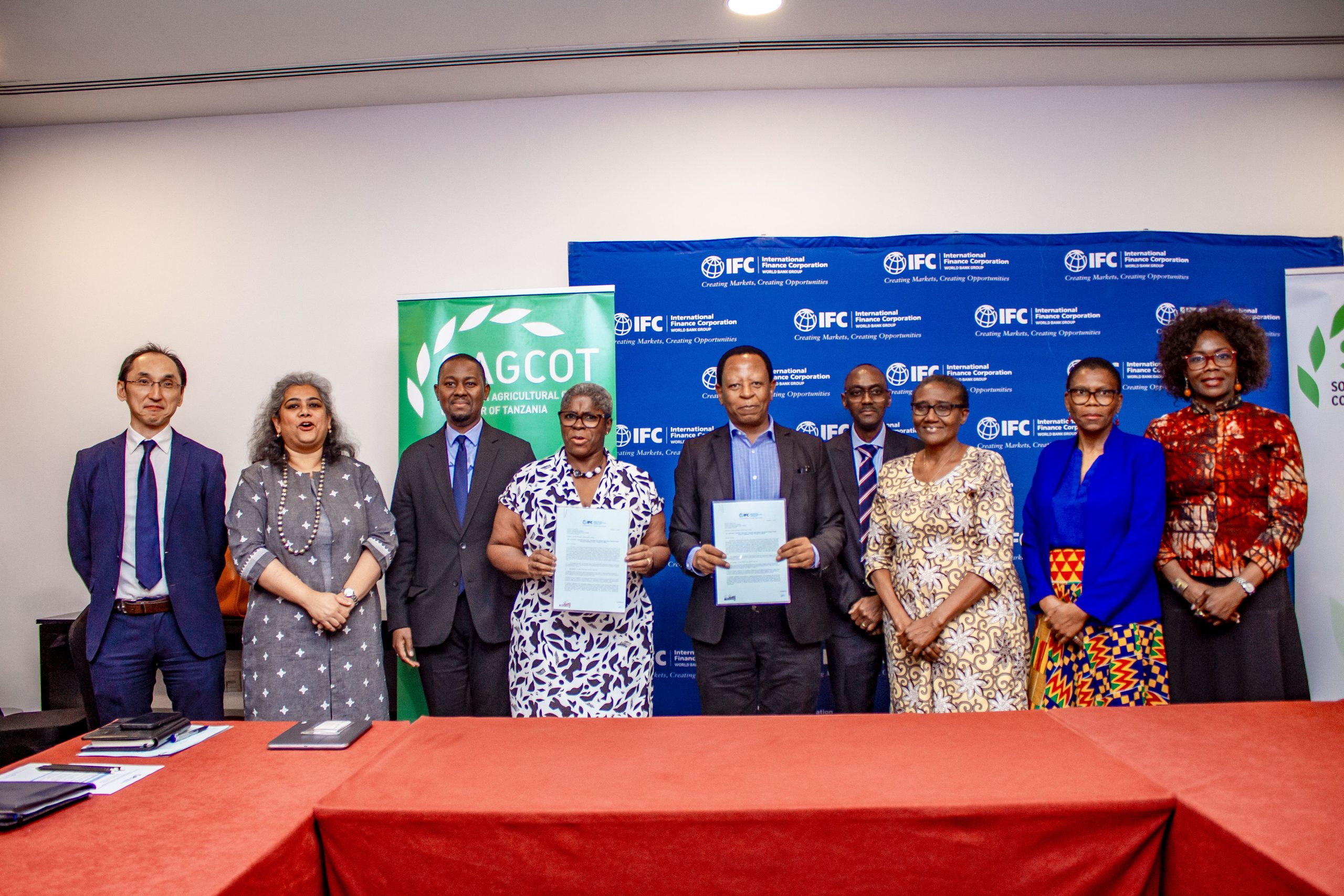Dar es Salaam, October 11, 2024 — At a pivotal moment for Tanzania’s agricultural sector, Geoffrey Kirenga, CEO of SAGCOT Centre Ltd., highlighted a combined investment of $6.3 billion during a landmark workshop organized in partnership with the International Finance Corporation (IFC), the Tanzania Investment Centre (TIC), and the Agricultural Council of Tanzania (ACT). This event presented the findings of two critical studies—the Tanzania Agricultural Value Chain Diagnostic and the Tanzania Warehousing and Warehouse Receipts System Diagnostic—aimed at unlocking fresh opportunities and tackling systemic challenges in the nation’s agricultural landscape.
A Decade of Progress and Strategic Investment
Kirenga lauded SAGCOT’s progress over the past decade, citing $1.3 billion in private sector investments and an additional $5 billion commitment from the government. This dual investment has driven the development of key agricultural infrastructure, positioning Tanzania for future growth. According to Kirenga, the SAGCOT initiative has facilitated private-public partnerships that are transforming the Southern Highlands Corridor, which stretches from Morogoro to the Coast Region.
“We are standing at a crucial juncture,” Kirenga emphasized. “The investment so far has laid the foundation, but we need to capitalize on this momentum, especially by increasing private sector involvement in key value chains like poultry, avocado, soybeans, and rice.”
Strategic Focus on Agricultural Value Chains
The workshop delved into the results of the two diagnostic studies, offering insights on bolstering the competitiveness and efficiency of 12 key agricultural value chains, including those for avocados, poultry, and soybeans. The studies provided actionable recommendations on how to improve services like the warehouse receipts system, which is designed to help farmers securely store produce while accessing credit to invest in their operations.
Government’s Role and Future Vision
Kirenga also praised the Tanzanian government’s significant role in agricultural development. Through large-scale investments in infrastructure, energy, and policy frameworks, the government is creating a conducive environment for farmers and agribusinesses. Initiatives such as the Agricultural Sector Development Program Phase Two (ASDP2) are aligned with broader national goals like Agenda 2030, demonstrating a comprehensive strategy for agricultural transformation.
“The government’s investment has been substantial, but to take full advantage of this, the private sector must step up to expand agro-processing and value addition, and build innovative market solutions,” Kirenga noted.
Tackling Key Challenges
Despite promising progress, several challenges remain. Key findings from the value chain diagnostic revealed obstacles such as limited access to finance for smallholders, inadequate processing and storage infrastructure, and weak coordination across value chains. Addressing these issues, particularly in warehousing and logistics, will be vital to enhancing Tanzania’s agricultural productivity and enabling farmers to compete in local and international markets.
A Collaborative Path to Growth
The workshop concluded with a strong call for greater collaboration between public and private stakeholders. Kirenga urged the private sector to increase investments in key areas to drive faster, sustainable growth. With Tanzania’s abundant natural resources—fertile land, water, and a rapidly improving infrastructure—the potential for transformative agricultural development is immense.
“The time for action is now,” Kirenga asserted. “We have the tools, the investments, and the vision to become a global leader in agriculture. But this requires alignment across sectors and a unified effort to enhance value chains and support farmers at every level.”
President Samia Suluhu Hassan officially directed the expansion of SAGCOT (Southern Agricultural Growth Corridor of Tanzania) into a nationwide model during the launch of the Africa Food Systems Forum 2023 at State House, Dar es Salaam, on March 17, 2023. This directive led to the creation of the Agricultural Growth Corridors of Tanzania (AGCOT) framework, signaling a significant transformation in Tanzania’s agricultural landscape. The expansion aims to position Tanzania as a key player in Africa’s food systems by scaling SAGCOT’s successes nationwide
